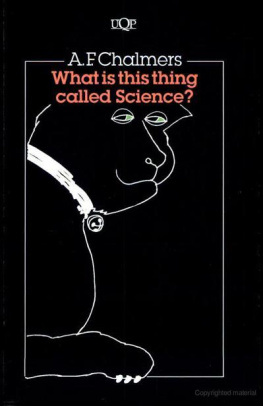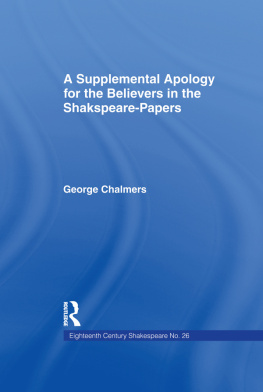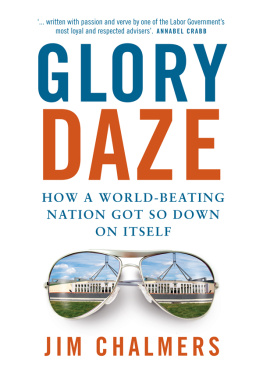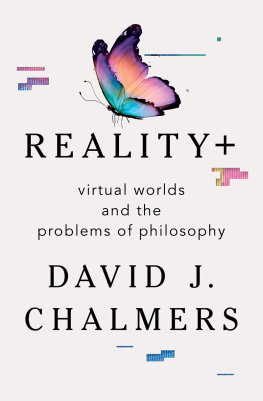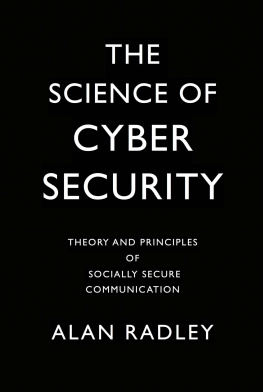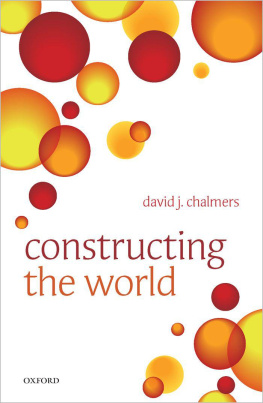Alan Francis Chalmers - What Is This Thing Called Science?
Here you can read online Alan Francis Chalmers - What Is This Thing Called Science? full text of the book (entire story) in english for free. Download pdf and epub, get meaning, cover and reviews about this ebook. year: 1999, publisher: Univ. of Queensland Press, genre: Romance novel. Description of the work, (preface) as well as reviews are available. Best literature library LitArk.com created for fans of good reading and offers a wide selection of genres:
Romance novel
Science fiction
Adventure
Detective
Science
History
Home and family
Prose
Art
Politics
Computer
Non-fiction
Religion
Business
Children
Humor
Choose a favorite category and find really read worthwhile books. Enjoy immersion in the world of imagination, feel the emotions of the characters or learn something new for yourself, make an fascinating discovery.
- Book:What Is This Thing Called Science?
- Author:
- Publisher:Univ. of Queensland Press
- Genre:
- Year:1999
- Rating:4 / 5
- Favourites:Add to favourites
- Your mark:
- 80
- 1
- 2
- 3
- 4
- 5
What Is This Thing Called Science?: summary, description and annotation
We offer to read an annotation, description, summary or preface (depends on what the author of the book "What Is This Thing Called Science?" wrote himself). If you haven't found the necessary information about the book — write in the comments, we will try to find it.
What Is This Thing Called Science? — read online for free the complete book (whole text) full work
Below is the text of the book, divided by pages. System saving the place of the last page read, allows you to conveniently read the book "What Is This Thing Called Science?" online for free, without having to search again every time where you left off. Put a bookmark, and you can go to the page where you finished reading at any time.
Font size:
Interval:
Bookmark:
A. F. Chalmers
What is this thing called Science?
Third edition
Hackett Publishing Company, Inc.
Indianapolis / Cambridge
Copyright 1976, 1982, 1999 by A. F. Chalmers
Reprinted from the 1999 third edition, University of Queensland Press, Box 42, St. Lucia, Queensland 4067 Australia
Library of Congress Catalog card Number: 99-71498
Paper ISBN 0-87220-452-9 Cloth ISBN 0-87220-453-7
"Like all young men I set out to be a genius, but mercifully laughter intervened." Clea Lawrence Durrel
This book is intended to be a simple, clear and elementary introduction to modern views about the nature of science. When teaching philosophy of science, either to philosophy undergraduates or to scientists wishing to become familiar with recent theories about science, I have become increasingly aware that there is no suitable single book, or even a small number of books, that one can recommend to the beginner. The only sources on the modern views that are available are the original ones. Many of these are too difficult for beginners, and in any case they are too numerous to be made easily available to a large number of students. This book will be no substitute for the original sources for anyone wishing to pursue the topic seriously, of course, but I hope it will provide a useful and easily accessible starting point that does not otherwise exist.
My intention of keeping the discussion simple proved to be reasonably realistic for about two-thirds of the book. By the time I had reached that stage and had begun to criticise the modern views, I found, to my surprise, first, that I disagreed with those views more than I had thought and, second, that from my criticism a fairly coherent alternative was emerging. That alternative is sketched in the latter chapters of the book. It would be pleasant for me to think that the second half of this book contains not only summaries of current views on the nature of science but also a summary of the next view.
My professional interest in history and philosophy of science began in London, in a climate that was dominated by the views of Professor Karl Popper. My debt to him, his writings, his lectures and his seminars, and also to the late Professor Imre Lakatos, must be very evident from the contents of this book. The form of the first half of it owes much to Lakatos's brilliant article on the methodology of research programs. A noteworthy feature of the Popperian school was the pressure it put on one to be clear about the problem one was interested in and to express one's views on it in a simple and straightforward way. Although I owe much to the example of Popper and Lakatos in this respect, any ability that I have to express myself simply and clearly stems mostly from my interaction with Professor Heinz Post, who was my supervisor at Chelsea College while I was working on my doctoral thesis in the Department of History and Philosophy of Science there. I cannot rid myself of an uneasy feeling that his copy of this book will be returned to me along with the demand that I rewrite the bits he does not understand. Of my colleagues in London to whom I owe a special debt, most of them students at the time, Noretta Koertge, now at Indiana University, helped me considerably.
I referred above to the Popperian school as a school, and yet it was not until I came to Sydney from London that I fully realised the extent to which I had been in a school. I found, to my surprise, that there were philosophers influenced by Wittgenstein or Quine or Marx who thought that Popper was quite wrong on many issues, and some who even thought that his views were positively dangerous. I think I have learnt much from that experience. One of the things that I have learnt is that on a number of major issues Popper is indeed wrong, as is argued in the latter portions of this book. However, this does not alter the fact that the Popperian approach is infinitely better than the approach adopted in most philosophy departments that I have encountered.
I owe much to my friends in Sydney who have helped to waken me from my slumber. I do not wish to imply by this that I accept their views rather than Popperian ones. They know better than that. But since I have no time for obscurantist nonsense about the incommensurability of frameworks (here Popperians prick up their ears), the extent to which I have been forced to acknowledge and counter the views of my Sydney colleagues and adversaries has led me to understand the strengths of their views and the weaknesses of my own.
I hope I will not upset anyone by singling out Jean Curthoys and Wal Suchting for special mention here. Lucky and attentive readers will detect in this book the odd metaphor stolen from Vladimir Nabokov, and will realise that I owe him some acknowledgment (or apology). I conclude with a warns "hello" to those friends who don't care about the book, who won't read the book, and who had to put up with me while I wrote it.
Alan Chalmers Sydney, 1976
Judging by responses to the first edition of this book it would seem that the first eight chapters of it function quite well as "a simple, clear and elementary introduction to modern views about the nature of science". It also seems to be fairly universally agreed that the last four chapters fail to do so. Consequently, in this revised and extended edition I have left chapters 1S virtually unchanged and have replaced the last four chapters by six entirely new ones. One of the problems with the latter part of the first edition was that it ceased to be simple and elementary I have tried to keep my new chapters simple, although I fear I have not entirely succeeded when dealing with the difficult issues of the final two chapters. Although I have tried to keep the discussion simple, I hope I have not thereby become uncontroversial.
Another problem with the latter part of the first edition is lack of clarity. Although I remain convinced that most of what I was groping for there was on the right track, I certainly failed to express a coherent and well-argued position, as my critics have made clear. Not all of this can be blamed on Louis Althusser, whose views were very much in vogue at the time of writing, and whose influence can still be discerned to some extent in this new edition. I have learnt my lesson and in future will be very wary of being unduly influenced by the latest Paris fashions.
My friends Terry Blake and Denise Russell have convinced me that there is more of importance in the writings of Paul Feyerabend than I was previously prepared to admit. I have given him more attention in this new edition and have tried to separate the wheat from the chaff, the anti-methodism from the dadaism. I have also been obliged to separate the important sense from "obscurantist nonsense about the incommensurability of frameworks".
The revision of this book owes much to the criticism of numerous colleagues, reviewers and correspondents. I will not attempt to name them all, but acknowledge my debt and offer my thanks.
Since the revision of this book has resulted in a new ending, the original point of the cat on the cover has been lost. However, the cat does seem to have a considerable following, despite her lack of whiskers, so we have retained her, and merely ask readers to reinterpret her grin.
Alan Chalmers Sydney, 1981
This edition represents a major reworking of the previous edition, in which very few of the original chapters have emerged unscathed and many have been replaced. There are also a number of new chapters. The changes were necessary for two reasons. First, the teaching of an introductory course in the philosophy of science that I have undertaken in the twenty years since first writing this book has taught me how to do the job better. Second, there have been important developments in the philosophy of science in the last decade or two that need to be taken account of in any introductory text.
Next pageFont size:
Interval:
Bookmark:
Similar books «What Is This Thing Called Science?»
Look at similar books to What Is This Thing Called Science?. We have selected literature similar in name and meaning in the hope of providing readers with more options to find new, interesting, not yet read works.
Discussion, reviews of the book What Is This Thing Called Science? and just readers' own opinions. Leave your comments, write what you think about the work, its meaning or the main characters. Specify what exactly you liked and what you didn't like, and why you think so.

